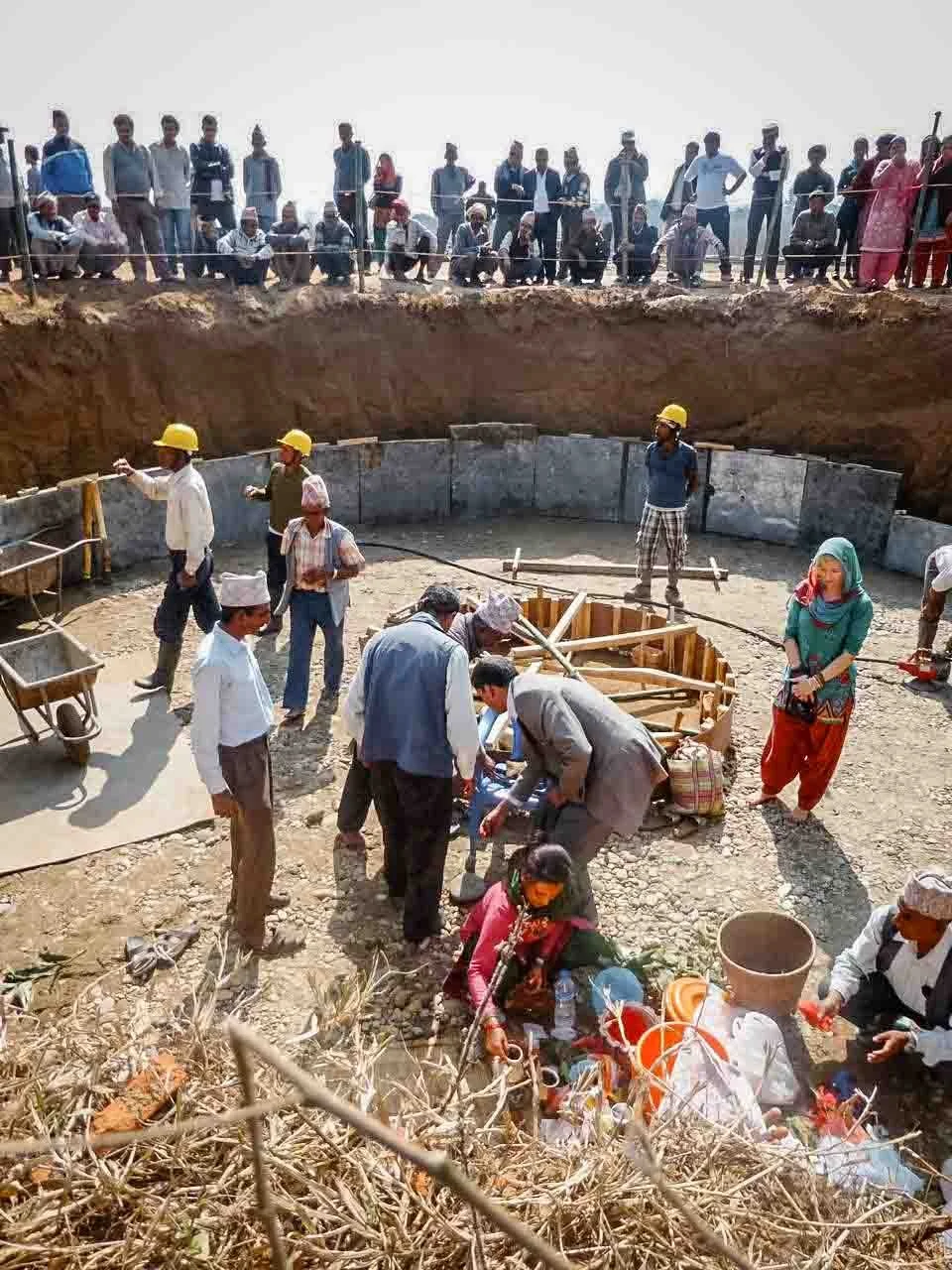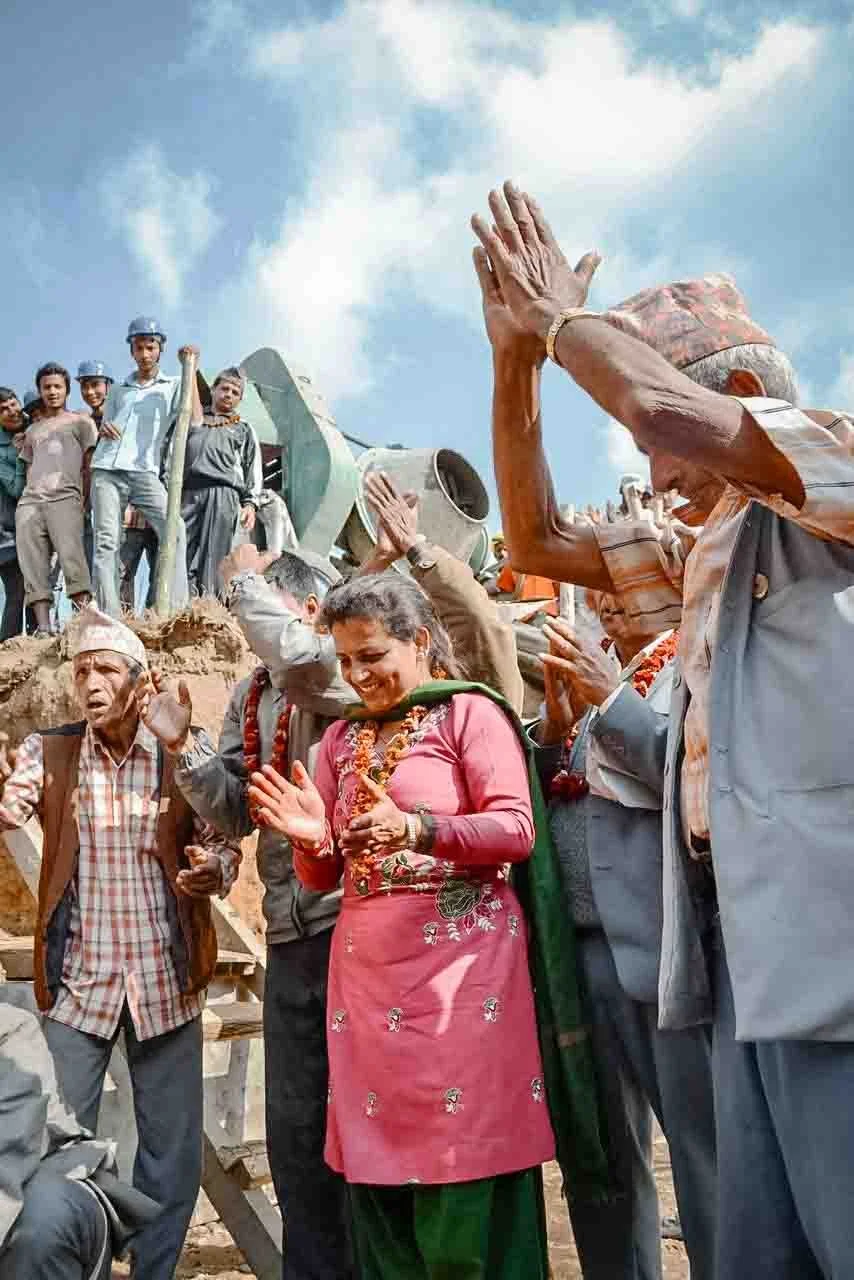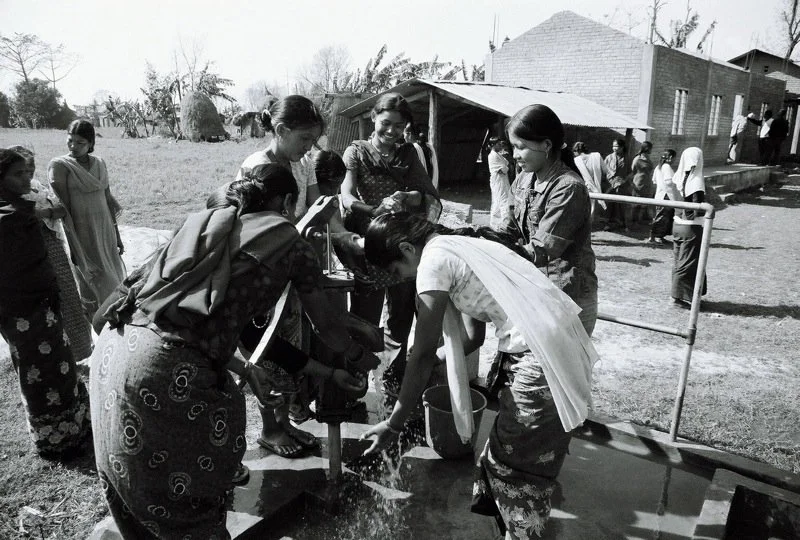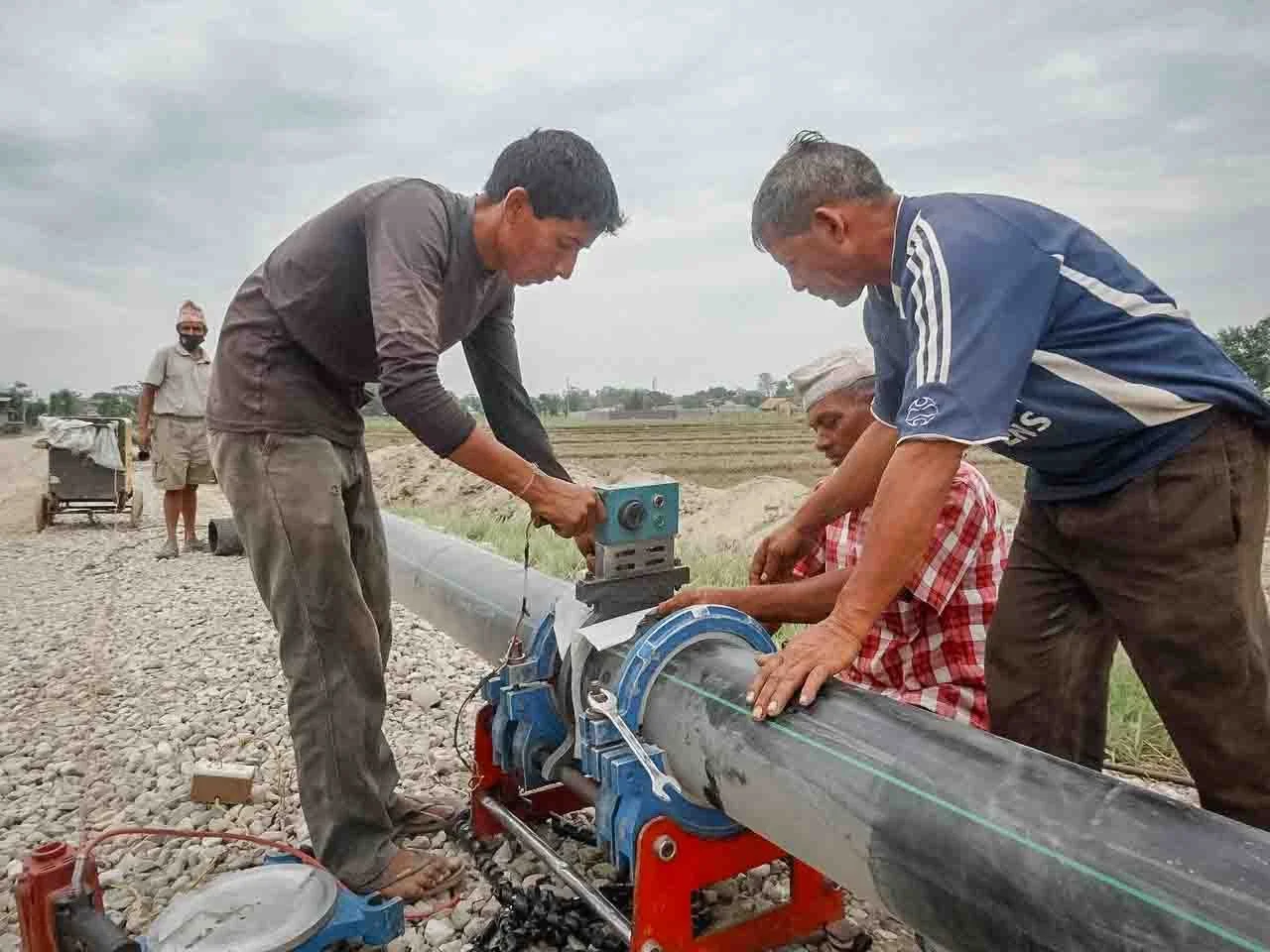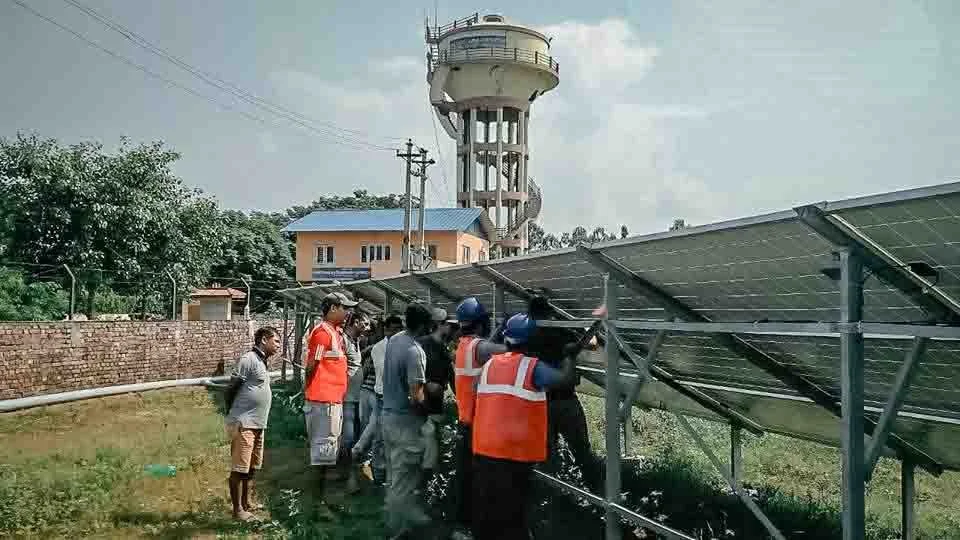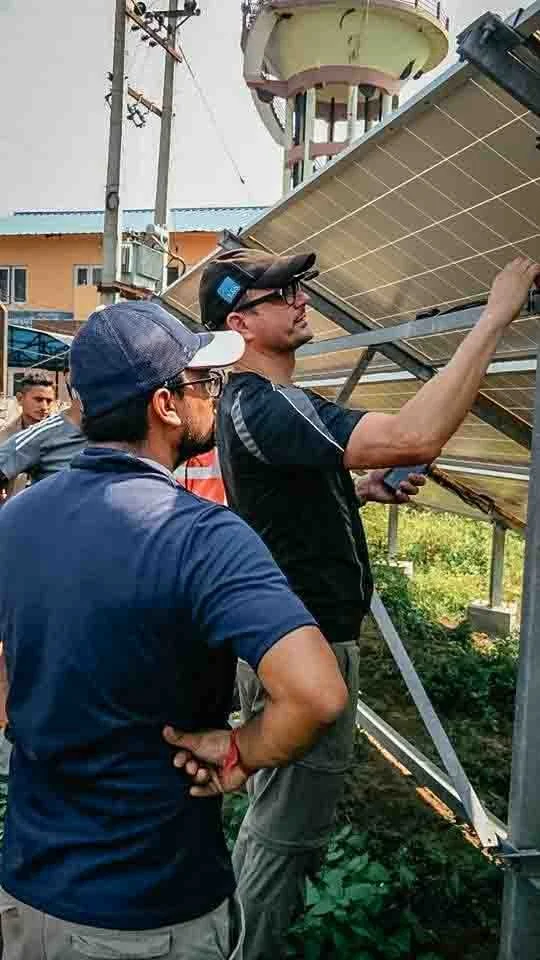
Transforming Meghauli
safe water and sanitation project
When Clinic Nepal was first established in 1997, it became evident that more than half of the health issues faced by patients from Meghauli were caused by poor sanitation and waterborne diseases. At the time, open defecation was widespread, with people using riverbanks, fields, roads, and even spaces outside their homes as latrines. Early on, Clinic Nepal realized that only giving medicine was not the solution. Clinic Nepal needed to prevent the problem, and that was not easy. One way to solve this was through health education. Clinic Nepal started with the kids at the kindergartens they ran, and worked their way up to educating the parents. The second way is to build water pumps for each cluster of families. Ensuring a clean supply of water.
At that time, Meghauli Village Development Community (VDC) had 2,865 households, but only 213 had a latrine. Recognizing the urgent need for action, Clinic Nepal staff engaged directly with local villages, community groups, and individual households to educate and motivate residents about hygiene practices, food safety, and the importance of sanitation.
The Safe Water and Sanitation Project
In 2002, Clinic Nepal officially launched the Safe Water and Sanitation Project to improve access to clean water and proper sanitation facilities. This was joint collaboration with WaterAid UK. Water pumps were installed between every 5 to 10 houses, drawing safe drinking water from depths of 30–35 feet. Over time, a total of 251 water pumps were installed across Meghauli. That same year, the initiative also began constructing household latrines, and within the last decade, 2,700 latrines were installed, ensuring that every home in Meghauli had a functioning latrine.
The impact of the project has been remarkable. The incidence of waterborne diseases in the community had significantly declined, making Meghauli one of the earliest communities in Nepal that had achieved full sanitation coverage.
Meghauli Town Water Supply and Sanitation Project
Around 2009 during a routine water quality check, it was determined that a few locations in Meghauli had traces of arsenic present more than the WHO recommended safe to drink. Arsenic is a naturally occurring element in Nepal. After lots of research, and reorganization Clinic Nepal concluded that the way to get around that was to dig deeper sources of water. After much planning, construction began in 2012 of two 100-meter deep tube wells, which would be able to empty into an overhead tank or tower. This project brought running water to most households in Meghauli, impacting nearly 20,000 people.
Solar Power for Sustainability
To further enhance the economic sustainability of the Water tower, a 100kW grid-tied solar panel system was installed and officially inaugurated in February 2021 by Clinic Nepal. The solar system generates approximately 12,000 units of electricity annually, reducing the community’s dependence on conventional energy sources.
Through these combined efforts, Meghauli transformed into a model community in Nepal, achieving full sanitation and improving access to clean water. Clinic Nepal remains committed to supporting these initiatives, ensuring that the health and well-being of the people continue to improve for generations to come.
